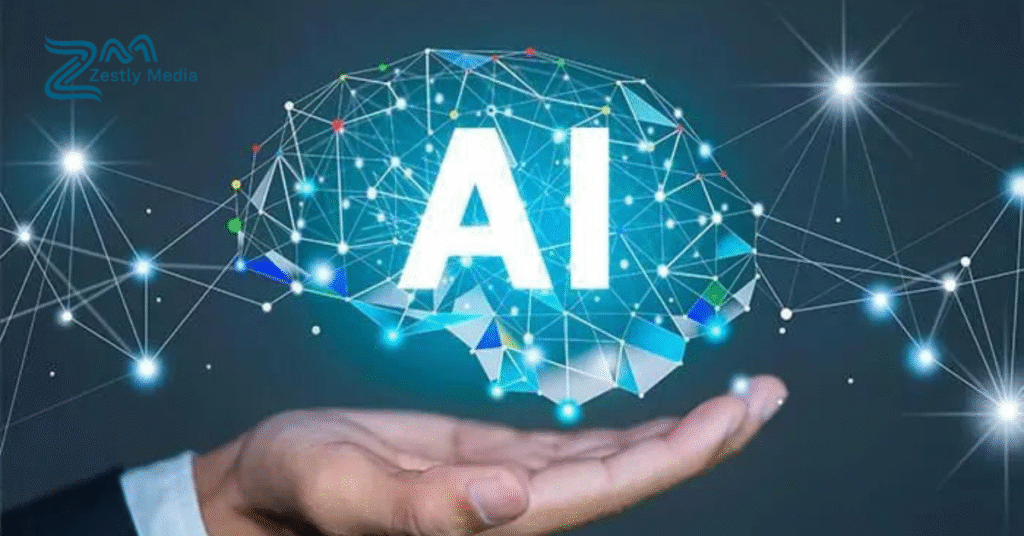Artificial Intelligence (AI) is no longer a futuristic concept—it is a reality shaping our daily lives, industries, and the way we work. From self-driving cars to personalized recommendations on streaming platforms, AI is influencing decisions, improving efficiency, and creating opportunities we once thought impossible.
In this blog, we will explore what AI is, how it is transforming various sectors, and its potential impact on the future.
Understanding Artificial Intelligence
Artificial Intelligence refers to the simulation of human intelligence in machines that are programmed to think, learn, and make decisions. AI systems can analyze vast amounts of data, recognize patterns, and adapt their actions accordingly.
Key branches of AI include:
Machine Learning (ML) – Teaching machines to learn from data and improve over time.
Natural Language Processing (NLP) – Enabling machines to understand and respond to human language.
Computer Vision – Allowing machines to interpret and process visual information from the world.
Robotics – Creating intelligent machines capable of performing complex tasks.
AI in Our Everyday Lives
AI is already embedded in technologies we use daily:
Voice Assistants like Alexa, Siri, and Google Assistant help with tasks using voice commands.
Recommendation Engines on Netflix, Amazon, and Spotify suggest content or products tailored to our preferences.
Navigation Apps like Google Maps use AI to optimize routes in real-time.
Smart Devices such as home automation systems learn user habits to improve energy efficiency.
These examples illustrate how AI makes our lives more convenient and efficient without us even realizing it.
Transforming Industries
AI is driving innovation across multiple sectors:
Healthcare – AI-powered tools assist in diagnosing diseases, analyzing medical scans, and predicting patient outcomes. Virtual health assistants can monitor patients remotely and provide preventive care recommendations.
Finance – AI detects fraudulent transactions, automates trading decisions, and provides personalized financial advice.
Education – AI enables personalized learning experiences, adaptive testing, and virtual tutoring systems.
Manufacturing – AI-powered robots and predictive maintenance systems reduce downtime and optimize production lines.
Marketing – AI analyzes customer behavior, automates ad targeting, and enhances personalization at scale.
The Future Workforce and AI
AI will reshape the nature of work. While it may automate certain repetitive tasks, it will also create new job opportunities in AI development, data science, and machine learning engineering. The future workforce will require a blend of technical skills and creative problem-solving abilities.
However, businesses and governments must address potential challenges, including:
Job displacement in industries heavily reliant on manual labor.
The need for reskilling and upskilling programs.
Ethical considerations in decision-making and bias reduction.
AI’s Role in Innovation
The future will see AI driving innovation in ways we can barely imagine:
Autonomous Transportation – Self-driving cars and drones revolutionizing logistics and travel.
Smart Cities – AI systems managing energy, traffic, and waste for more sustainable urban living.
Space Exploration – AI assisting in analyzing planetary data and controlling autonomous rovers.
Drug Discovery – Accelerating the development of new medicines and treatments.
Ethical Considerations and Challenges
As AI becomes more powerful, it raises important ethical questions:
How do we ensure AI systems make fair and unbiased decisions?
Who is responsible when AI makes a mistake?
How do we protect privacy in an AI-driven world?
Transparency, accountability, and strong governance will be crucial to ensuring AI benefits society without causing harm.
AI and Sustainability
AI can play a critical role in building a sustainable future:
Optimizing energy consumption in industries and homes.
Predicting climate patterns to prepare for environmental changes.
Enhancing agricultural productivity through precision farming.
By integrating AI into sustainability initiatives, we can tackle global challenges like climate change and resource scarcity more effectively.
The Road Ahead
The pace of AI development suggests that its impact will only grow stronger. In the coming decades, AI will become an even more integral part of our personal and professional lives, influencing everything from how we communicate to how we solve complex global problems.
However, the success of AI’s integration into society depends on our ability to balance innovation with ethics, accessibility, and inclusivity. Governments, businesses, and educational institutions must work together to ensure AI serves the greater good.

Final Thoughts
Artificial Intelligence holds immense potential to transform our world for the better. From improving healthcare and education to advancing sustainability and innovation, AI is paving the way for a smarter, more connected future.
While challenges such as job displacement, ethical concerns, and bias remain, the benefits of AI far outweigh the risks—provided we approach its development with responsibility and foresight. The future of AI is not just about technology—it’s about shaping a world where humans and intelligent machines work together to solve the challenges of tomorrow.


